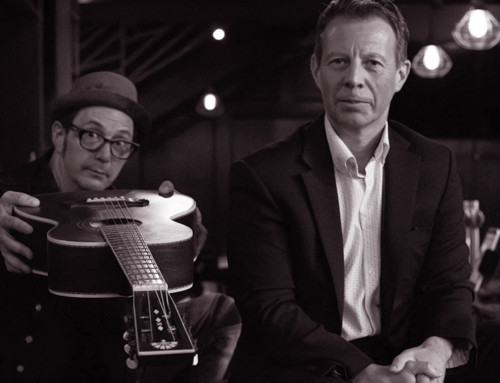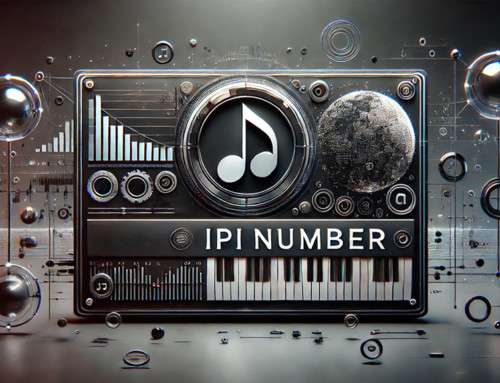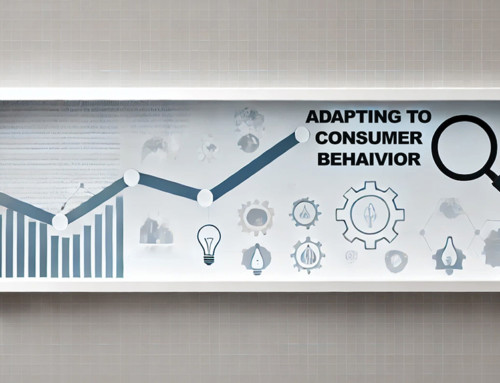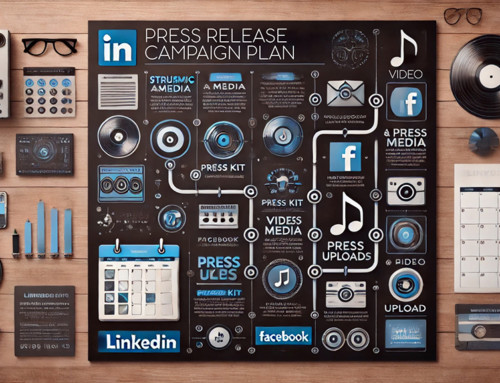As an independent artist, public relations (PR) can be a game-changer. In a world where major labels dominate the industry with massive budgets and established networks, how can an independent musician build their own audience and career? The answer lies in mastering the fundamentals of PR.
This guide breaks down PR for independent artists into its most basic principles and builds a clear understanding of how to effectively manage your own public relations, even with limited resources. Whether you’re just starting out or looking to refine your approach, these principles, the principals we use daily in our PR efforts, will help you connect with your audience, increase your visibility, and build a long-lasting career.
What is the Purpose of PR for Independent Artists?
At its core, public relations is about building a positive image and spreading awareness about your work. It’s not just about getting your name out there, but about crafting a narrative that resonates with the public and makes people care about your music.
For independent artists, the goals of PR include:
- Exposure: Getting your music in front of the right people—fans, media, and industry professionals.
- Reputation Building: Shaping how you are perceived by the public. Do you want to be seen as a genre-defining artist, a skilled live performer, or a trendsetter?
- Connection: Creating lasting relationships with your audience, as well as industry insiders like journalists, bloggers, radio hosts, and influencers.
These objectives are essential for any artist, but for an independent musician, PR plays a critical role in leveling the playing field. Without the backing of a major label, it’s your ability to control your message and reach out to your audience that can make or break your career.
The Unique Challenges Independent Artists Face
Independent artists face several key challenges that make PR more difficult but also more creative:
- Limited Budget: Without the financial backing of a major label, independent artists need to be strategic and cost-effective in their PR efforts. Paying for traditional PR services, large advertising campaigns, or professional content creation might be out of reach.
- Limited Reach: Major label artists often have built-in access to a large audience through established platforms, industry connections, and major media outlets. Independent artists, on the other hand, need to find ways to build an audience from the ground up.
- High Competition: The music industry is more saturated than ever. You’re competing not only with other independent artists but also with major stars who dominate the market. Standing out is crucial.
While these challenges might seem daunting, they also present opportunities for independent artists to be more innovative, authentic, and direct in their approach to PR. The key is to understand the fundamental principles of public relations and how to apply them effectively, even with limited resources.
Core Principles of Public Relations
To create a successful PR strategy, you first need to understand its fundamental components. These principles are the foundation of all effective PR efforts, regardless of the artist’s size or status.
1. Message Control
What do you want people to know about you? Your message is your story—what makes you unique as an artist, what your music represents, and what you stand for. Controlling your message means defining this narrative and ensuring that it’s consistent across all platforms, whether in interviews, social media posts, or public appearances.
As an independent artist, you have the freedom to shape your message entirely on your own terms. Ask yourself: What’s my artistic vision? What emotions or stories do I want my audience to associate with my music? Why should they listen?
2. Audience Targeting
Who are you speaking to? PR is not about reaching everyone; it’s about reaching the right people. Identifying your niche audience is critical. This might mean focusing on a specific genre’s fan base, collaborating with genre-specific blogs, or reaching out to smaller radio stations that are more open to promoting independent talent.
Once you identify your audience, tailor your message to speak directly to them. For example, if you create experimental electronic music, you might target tech blogs or underground music forums rather than mainstream pop outlets.
3. Content Creation
PR thrives on content—press releases, articles, interviews, social media posts, and more. Creating compelling, newsworthy content is essential to getting noticed. However, you don’t need to spend a fortune to produce great content. Independent artists can DIY their own content, from video interviews and behind-the-scenes footage to blog posts and fan interactions on social media.
Think about what makes your story interesting and what kind of content will resonate with your audience. Are you releasing a new album? Create a narrative around its creation. Did you tour, nationally or internationally? Share your experiences in a blog post or video series.
4. Relationship Building
A big part of PR is developing relationships with media outlets, influencers, and fans. These relationships will help you spread your message further. For an independent artist, this means reaching out directly to bloggers, small radio stations, and influencers who can help promote your music.
Networking within your niche is vital. Engage with other artists, collaborate, and cross-promote. Independent artists often find that collaboration and community-building are some of the most effective ways to grow their PR efforts organically.
5. Consistency
PR is not a one-off effort. It’s an ongoing process. Consistency in your communication keeps you relevant. Regularly engaging with your audience, updating your social media, and consistently releasing content will ensure you stay in the public eye.
How to Leverage PR with Limited Resources
As an independent artist, you don’t need an enormous budget to run an effective PR campaign. The key is to maximize your impact with limited resources by using smart strategies and leveraging the tools available to you.
- Define Your Message Clearly
Before you even start creating content, be sure that your message is crystal clear. What makes you unique as an artist? Why should people listen to your music? Your message should be simple, consistent, and authentic, and it should be the cornerstone of all your PR efforts.
2. Target a Niche Audience
Don’t try to appeal to everyone. Focus on a smaller, dedicated audience that will truly connect with your music. Reach out to niche music blogs, podcasts, and social media communities. A smaller, engaged audience is often more valuable than a large, passive one.
3. Create DIY Content
You don’t need a big budget to create great content. Independent artists can take advantage of DIY tools to create compelling content. Record short video messages, post behind-the-scenes footage, write personal blog posts, or engage with fans on social media. Authentic, personal content often resonates more than highly produced, impersonal content.
4. Engage Directly with Fans
Social media has made it easier than ever to engage directly with your fans. Regularly interact with them through posts, stories, and live streams. Build a personal connection. Not only does this foster loyalty, but it also helps amplify your reach through word-of-mouth.
5. Collaborate with Other Artists and Media
Collaborations are a great way to increase your reach without spending money. Team up with other independent artists for joint projects, cross-promote each other’s work, or collaborate on performances. Building relationships with niche media outlets, bloggers, and influencers can also help you gain exposure without the need for major financial investment.
In Conclusion: Take Control of Your PR
For independent artists, mastering PR is about taking control of your narrative, targeting the right audience, and consistently creating content that resonates. With limited resources, you can still build a strong PR presence by leveraging DIY tools, building relationships, and remaining authentic in your communication.
Public relations is a long-term investment in your career. It’s about creating opportunities and connecting with the people who matter. The more consistent, creative, and authentic you are in your PR efforts, the more your audience and reputation will grow over time. Take control of your public image, and use PR to propel your music career to new heights.




